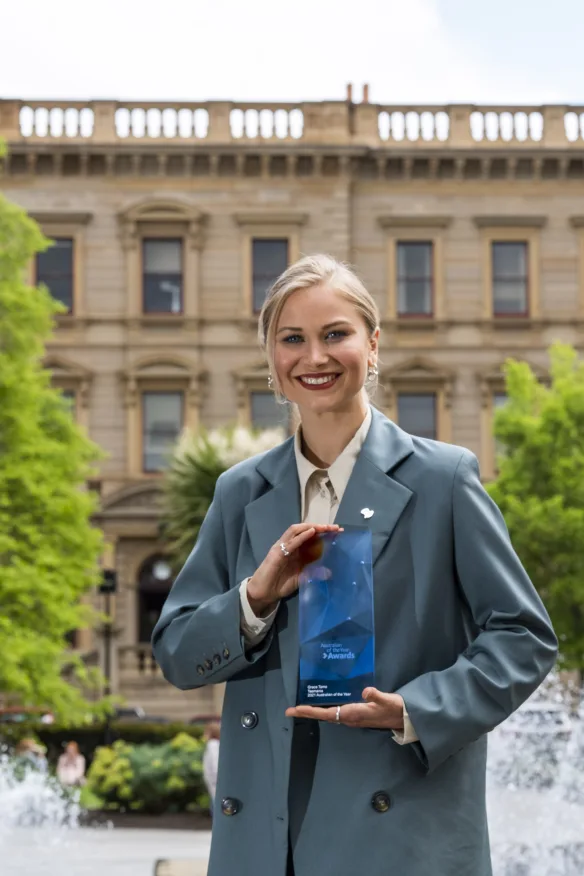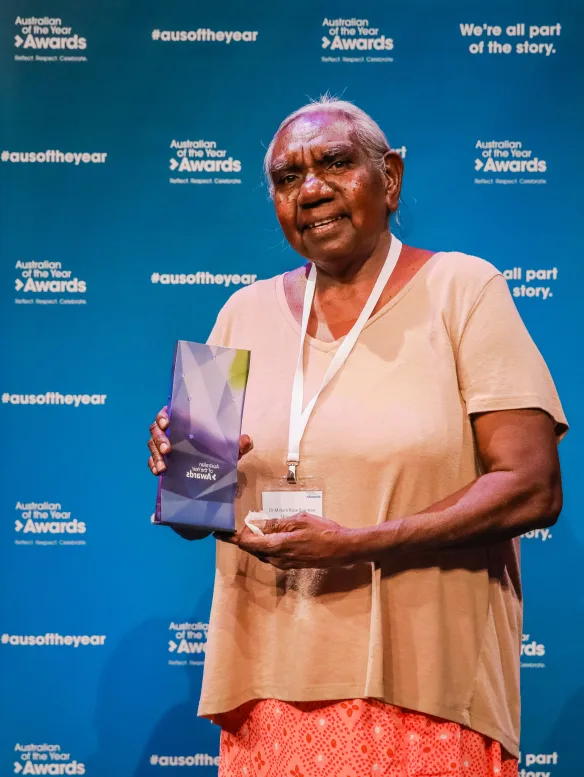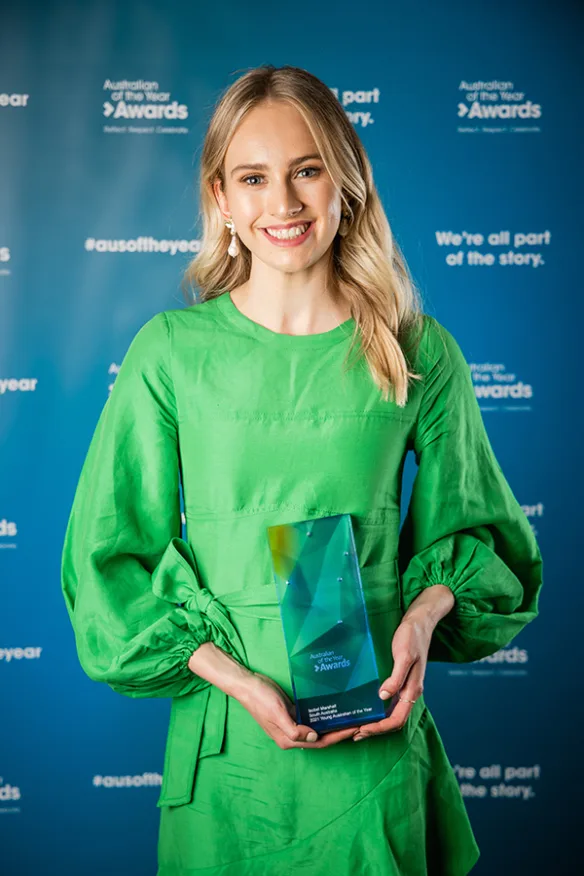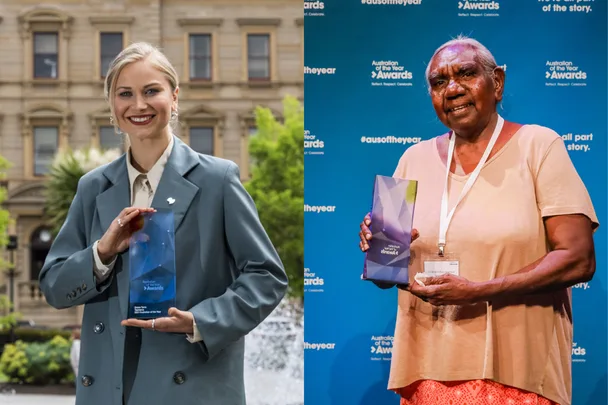The top honours of the Australian of the Year 2021 Awards have been announced and the spread of recipients is gratifying to see.
Advocate and emblem of the #LetHerSpeak campaign, Grace Tame, was honoured as 2021’s Australian of the Year for her work in changing sexual assault victim gag laws. Dr Miriam-Rose Ungunmerr Baumann AM, an Aboriginal elder from Nauiyu is a renowned artist, activist, writer and public speaker and was awarded the Senior Australian of the Year award.
Social entrepreneur Isobel Marshall was named the Young Australian of the Year: at just 18-years-old Marshall created a social enterprise and campaigns to end the stigma around menstruation and period poverty that people around the world face. Rosemary Kariuki began her life in Australia as a refugee, fleeing from Kenya alone in 1999.
Below, more on these extraordinary women and their accomplishments that model the values of empathy, service, community and advocacy that all Australians can aspire to embody.

Grace Tame
At 15, Tame was groomed and raped by her 58-year-old maths teacher. While he was found guilty and convicted of his crimes, Tame was silenced under Tasmania’s sexual-assault victim gag laws. Through her work on the #LetHerSpeak campaign, Tame shone a light on the issue and ultimately won her Supreme Court case that gave her the right to self-identify as a rape survivor. Now, she continues to advocate for other’s rights and other survivors of institutional abuse. “All survivors of child sexual abuse, this is for us,” Tame said accepting her award.

Rosemary Kariuki
Arriving in Australia in 1999, Kariuki quickly realised that a major issue for migrant and refugee women was isolation. The language barriers, lack of transport and the unfamiliarity with going out along all pose challenges to women trying to make a safe and better life for themselves.
Working with the African Women’s Group, she helped begin the African Women’s Dinner Dance. More than 400 women now attend the annual event, which has been running for 14 years. Kariuki also helps empower women economically through the African Village Market, which is a program aimed at helping migrants and refugees start their own business.
“Sometimes we don’t realise the difference the smallest gesture can make,” Kariuki reflected while accepting her award. “Together we can make this wonderful country that I call home even greater. I would like to encourage every one of you to meet someone from a different background this week, and see what opens up to you.”

Dr Miriam-Rose Ungunmerr Baumann AM
Baumann became the Northern Territory’s first-ever fully qualified Aboriginal teacher in 1975, and her passion for art and education has characterised her career as an educator and activist. In her work as an art consultant for the Department of Education, she has visited schools through the Top End and advocated for every child’s education to include visual art.
Further, she’s an experienced speaker and was appointed to the Federal Government’s advisory body, the National Indigenous Council. She also founded the Miriam Rose Foundation, to bridge the divide between Aboriginal culture and mainstream society.

Isobel Marshall
Marshall co-founded TABOO with her friend Eloise Hall, a campaigned-turned-social enterprise that is aimed at breaking down the stigma around menstruation and providing greater access to hygiene products. After crowdfunding over $50,000, TABOO now sells high quality, ethically sourced, organic cotton pads and tampons in Australia, with 100 per cent of net profits going to One Girls—a charity providing education programs for girls and women in Sierra Leone and Uganda.
Beyond that, she has also partnered with and supports multiple organisations, including Vinnies Women’s Crisis centre and the Ngaanyatjarra Pitjantjatjara Yankunytjatjara Women’s Council.










